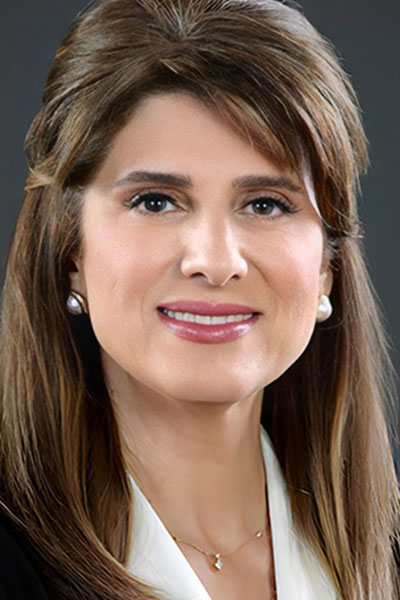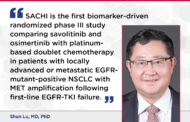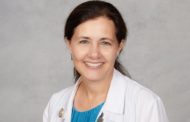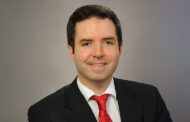
Her Royal Highness Princess Dina Mired of Jordan is a well-known global advocate for eradicating cancer and other non-communicable diseases (NCDs). She’s also the mother of a cancer survivor. Her second child, Prince Rakan bin Mired, was born in Amman on November 20, 1995, and diagnosed with leukemia in 1997.
Princess Dina sat down for an exclusive interview with ILCN on the first day of the 2023 World Conference on Lung Cancer. Read the first half of that interview here and look for part two in the coming weeks. The interview has been edited for length and clarity.
ILCN: Many people know you as a tireless advocate in the battle against cancer and other non-communicable diseases, but can you tell us why you took up this fight? It seems very personal.
Princess Dina: I didn’t choose cancer. It was never on my radar. But cancer chose our family when our son was diagnosed with leukemia at the tender age of barely two years old. And I became, like everybody else, a mother battling cancer with her child, with my husband, and with our family. And now, as I always say, I have the coveted title of “mother of a cancer survivor.” I’m so grateful that our son had the chance to have the top treatment at the time, both in England and then later in the US. At that time in Jordan, we did not really have good cancer care.
I knew then that this is the path that I was put on. I was one of the lucky few who could actually travel and get this costly treatment and stay abroad when others do not have that option. And when I came back to Jordan, I took on the role to establish the King Hussein Cancer Foundation. We had the King Hussein Cancer Center already, but the Foundation’s role for advocacy and fundraising was not really there. I became the director general. And with the team at the center and the board, we really managed to excite and mobilize the whole society. It took teamwork and hard work. It wasn’t an easy road, but we stuck to our guns and our goals, and we wouldn’t let anything stop us. We really turned our cancer center from literally a morgue to one of the best cancer centers in the region.
ILCN: You’ve noted that Jordan has one of the highest smoking rates in the world. Does that play a role in your advocacy as well?
Princess Dina: Yes. I’m a very anti-tobacco advocate, both in Jordan and globally, but especially in Jordan. We have one of the highest rates because we are triple users. There’s traditional cigarettes, electronic cigarettes, and shisha, which has become even more prevalent. You cannot go to a restaurant and not smell shisha. (Editor’s note: Shisha is aromatic or flavored tobacco used in a water pipe commonly called a hookah.).
We tried to fight the introduction of electronic cigarettes but failed because this is big business. It’s really reached unprecedented proportions because the tobacco industry has had a field day breaking all the rules. They literally go to our kids, and I’m talking kids—children.
We’ve asked our government to implement public health laws in a very strict way because otherwise we’re going toward being a sick population. And in an unprecedented move, our King, His Majesty King Abdullah II, who usually does not interfere with these things, urged the government within the last two weeks to actually do something about this.
ILCN: What do you hope will be done?
Princess Dina: Implementing public health laws like smoke-free public places, protecting our children from advertising and protecting them from tobacco companies literally setting up shop right outside their schools. It’s really scary stuff. Hopefully we can make a dent in this because we’re really going the wrong way.
ILCN: In your Opening Plenary Session remarks, you discussed the “breathtaking inequality” of lung cancer. What needs to happen to improve access to care for all patients with cancer?
Princess Dina: There are children in Africa dying of leukemia that my son had. In high-income countries, you can reach a 90% chance of survival. In some countries in Africa, that child has a 10% chance of survival. We need to revamp, rethink, and reinvest in the whole global health system that we inherited. We need to get people to mobilize for non-communicable diseases and not just for viruses. We need to care enough and start thinking about our fellow human beings in low- and middle-income countries. I talk a lot about how we need to “care enough,” and I really need to give credit to the NCD Alliance because they’re launching a campaign about caring.
ILCN: In the battle against non-communicable diseases, and especially lung cancer, what signs of progress do you see?
Princess Dina: First of all, to have this conference in this region and to have more than 6,000 participants, that is a very big win to have everybody congregate, share their experiences, and share knowledge. That is huge. These kinds of conferences, they’re really very important. In a way, you sort of unleash 6,000 advocates in their own countries to talk about these issues and to push forward.
There’s also innovation with personalized medicine, with targeted therapy and immunotherapy. Hopefully this progress for cancer patients, in general, will continue because it is wonderful to have new types of treatment that are not based on the trial-and-error method of traditional treatments, which my son had to go through. I still remember signing consent forms for my son’s treatments, you know, do you approve of having all these toxic things? And you just sign because you don’t have any choice—but now you do. You can have this novel treatment that hopefully in the future they might be easier to deliver, even in low- and middle-income countries. But where we are right now is that these novel things are not available for everybody.
The other message is prevention, which is the cheapest form of therapy for lung cancer. We are so lucky that lung cancer is so amenable to prevention. It’s the one cancer that is. Nobody can dispute the causal link between tobacco and lung cancer.





